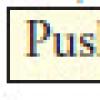 |
Buddy, Can You Paradigm? Contrary to popular belief, object orientation is not the One True Paradigm--there isn't one, each programming style has its own claim to fame, and one is not necessarily better than another. So, even more important than being proficient in multiple languages is the addition of multiple paradigms to your development arsenal.
|
|
|
|
Developing Your Sense of Smell With all of the resources available these days—books, blogs, Webcasts, training,—that aid us in our design, are you one of those programmers who lacks the "olfactory gene" needed to detect refactoring odors in your code? Unit testing helps you refine your sense of smell and improve your code design.
|
|
 |
Transform Your Software Bring out the best in your code. Systematic code transformations are an important tool for test-driven development. Refactoring and generalization—common code transformations in TDD—improve the code while preserving its behavior and broaden the capabilities of the software. Each technique has its place, and together they help make TDD effective.
|
|
|
|
The Secret to Software Development In the wake of Rhonda Byrne's bestseller The Secret, Carol Dekkers examines whether the theories behind Byrne's blockbuster can be applied to software development. Can the Law of Attraction and positive energy really be all it takes for successful, positive project results—or is that just wishful thinking?
|
|
 |
Make Reuse a Reality with STL Algorithms Good code is a beautiful thing--especially when you don't have to write it. While most of us are quick to use prepackaged containers such as vectors, lists, and maps in everyday programming, we often overlook algorithms as a reuse tool. Find out how standard template library algorithms, specifically, can put you on the road to reuse.
|
|
 |
Why Compilers Miscalculate Floating Point Numbers: Piles of Sand, Redux In this continuation of his June 2007 article on floating-point numbers, Chuck Allison explains why certain compilers miscalculate sin(x) for large arguments and why some get it right. He also divulges that floating-point spacing is the key to getting the most from numeric computations.
|
|
 |
Getting Your Hands Dirty One way to build quality in is to prevent defects from ever happening. Discover how you can avoid defects by figuring out how to test each feature or requirement before you begin to write the code. Clarke Ching offers up an easy, hands-on example you can put to use today.
|
|
 |
Putting Policy in Its Place Establishing policies is the easy part. How do you ensure those policies are being universally applied and adopted? Find out how Microsoft's Policy Injection Application Block can help solve some of your policy dilemmas.
|
|
|
|
Do You Work in IT? A self-professed latecomer to IT, Danny Faught has a new appreciation for the challenges faced when developing products for an internal customer rather than products for sale.
|
|
|
|
The Whorfian Hypothesis Benjamin Whorf hypothesized that the language we speak constrains the thoughts we can have. Learn how a well-developed organizational vocabulary can help increase the quality of your products.
|
|

